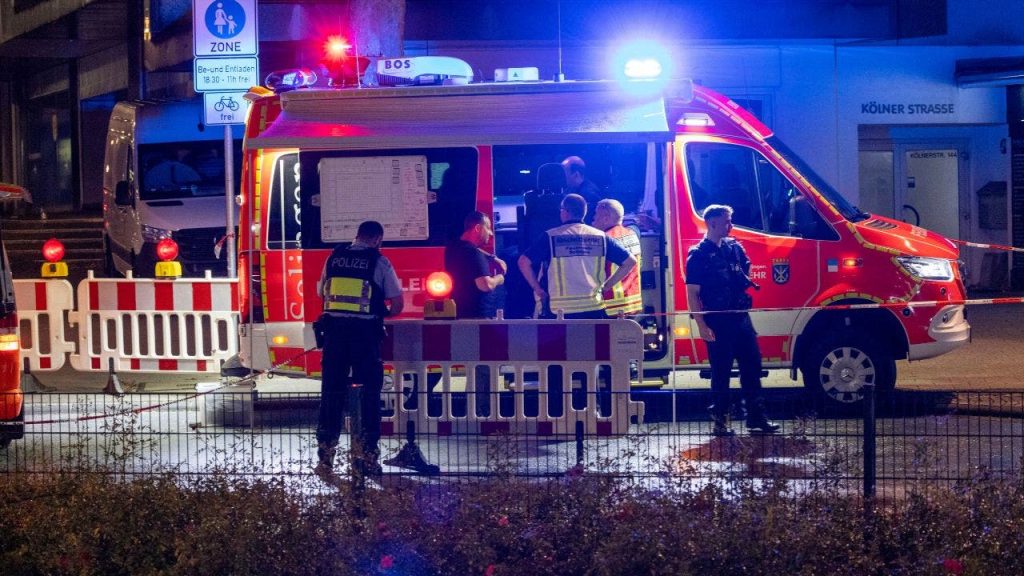Authorities have identified a 26-year-old man responsible for a deadly stabbing spree at a festival in Solingen, Germany, as a Syrian national with possible links to the Islamic State. The suspect, identified as Issa Al H., was living in a refugee home in Solinger prior to the attack. The Islamic State claimed responsibility for the attack, stating that it was carried out to avenge Muslims in Palestine and elsewhere. The group described the attacker as a “soldier of the Islamic State,” highlighting concerns about terrorism.
Chancellor Olaf Scholz called for stricter immigration laws and increased deportations following the attack, emphasizing the need to repatriate those who are not allowed to stay in Germany. The victims of the attack were enjoying a live music band playing at the festival when they were targeted by the attacker. Three people died, including two men aged 67 and 56, and a 56-year-old woman. The police reported that the attacker appeared to intentionally aim for the victims’ throats, underscoring the severity of the incident.
Fatal stabbings and shootings are relatively rare in Germany, prompting the government to consider tightening regulations on knives carried in public. The attack in Solingen is not an isolated incident, as another Afghan migrant went on a stabbing spree earlier in Mannheim, causing injuries to an anti-Islam activist and others, including a police officer who died. Political tensions are rising ahead of upcoming state elections in Thuringia, Saxony, and Brandenburg, where the right-wing party Alternative for Germany (AfD) is expected to perform well.
In the aftermath of the attack, Solingen Mayor Tim Kurzbach expressed shock and sadness over the tragic event, stating that the community was looking forward to celebrating the town’s anniversary together. The violence has shaken the town, leading to an outpouring of support from residents who placed candles and flowers at the scene of the attack. The incident highlights the ongoing debate over immigration policies and the balance between security and openness in Germany.
The role of the Islamic State in the attack raises concerns about terrorism and extremism among refugee populations in Germany. Authorities are investigating the motives and background of Issa Al H., the suspected attacker, to determine whether there were any accomplices or broader connections to terrorist organizations. The incident has ignited calls for increased vigilance and security measures to prevent similar attacks in the future.
Despite the tragedy, Chancellor Scholz emphasized the importance of unity and resilience in the face of terrorism, affirming that the attack was an act of terrorism against all. The government’s response to the incident will likely focus on strengthening security measures, enhancing intelligence capabilities, and addressing any gaps in the immigration and refugee systems that may have contributed to the attack. As Germany grapples with the aftermath of the festival stabbing spree, the focus remains on supporting the victims, investigating the circumstances of the attack, and preventing future acts of violence.


